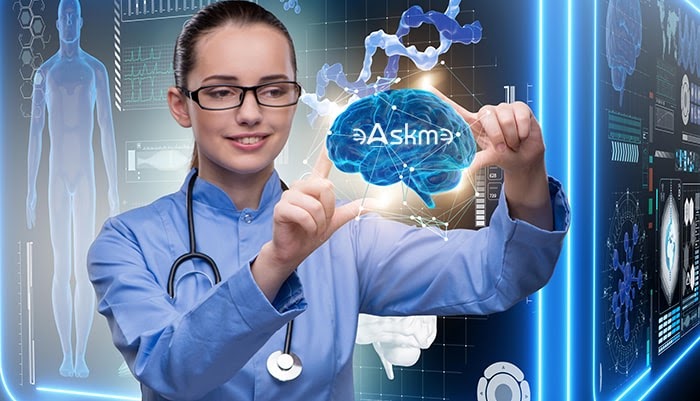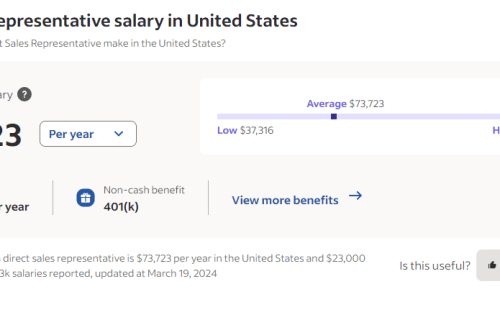The potential of AI technology (Artificial Intelligence) to enhance results in health matters, particularly concerning life and mortality, is tremendously alluring.
At the same time, there are still many obstacles to overcome before AI-dependent health care becomes a reality.
Chief among them is data privacy issues and worries about poorly managed care brought on by human oversight gaps and machine error.
| How Is Artificial Intelligence Used In Healthcare?: eAskme |
There is enough promise that authorities, technology firms, and health professionals are willing to invest in and test AI-powered tools and solutions.
AI is improving at accomplishing human activities more quickly, efficiently, and affordably. AI and robotics both hold great potential for the future of healthcare.
Our healthcare ecosystem increasingly relies on AI and robots in our daily lives. Medical marketing agencies already know how to improve in using AI Design.
Different Types of AI Intelligence:
Artificial intelligence has genuinely amazing potential in the field of healthcare.
AI in medicine is anticipated to significantly alter how we analyze healthcare data, identify diseases, provide remedies, and even completely avoid them.
Artificial intelligence (AI) in healthcare enables medical personnel to make more intelligent choices depending on more precise information, which saves time, lowers costs, and generally improves medical data administration.
AI in healthcare has the potential to revolutionize the industry, paving the way for a day when patients will receive high-quality medical attention quicker and more precisely than ever before, from discovering novel cancer therapies to enhancing patient experiences.
Developing Computers:
This broad technique has several variations, which is at the foundation of alternative ideas to AI and medical technology.
Machine learning has changed how the healthcare system operates by enabling the application of artificial intelligence in medical evaluation and therapy.
With higher precision than ever, machine learning algorithms can swiftly analyze massive quantities of clinical paperwork, spot trends, and predict outcomes about medical outcomes.
The data science underpinning machine learning assists healthcare providers in improving their treatments and lowering costs by evaluating patient information and medical imaging and developing novel remedies.
Automatic Language Recognition:
A computer program that enables machines to comprehend and utilize human language. The healthcare sector has changed as a result of this type of technology.
NLP is being utilized in the healthcare industry for various healthcare information applications.
This includes enhancing patient care by increasing the accuracy of diagnoses, expediting clinical procedures, and offering more individualized services.
Medical personnel may utilize machine learning to more precisely diagnose ailments and give more individualized therapies to their patient’s thanks to natural language processing, a vital tool in the healthcare industry.
This type of healthcare AI is rapidly needed in the contemporary healthcare business.
It will probably get much more advanced and be employed in various applications.
Expert Systems:
Expert systems often include the development of a comprehensive set of rules in a particular knowledge area by engineers and human experts.
They are simple to understand and follow and work well until a certain point.
Yet if regulations increase excessively, often over several thousand, the rules may clash and disintegrate.
Also, altering the rules might be difficult and time-consuming if the scope statement undergoes a large shift.
Machine learning is gradually replacing rule-based systems in the healthcare industry with methods based on data interpretation utilizing specialized medical algorithms.
Uses in Diagnostics and Therapy:
Over the past 50 years, illness diagnosis and treatment have been at the center of artificial intelligence (AI) in healthcare.
Although early regulation systems could effectively identify and treat diseases, the clinical practice did not fully embrace them.
They weren’t noticeably more accurate at detecting than people, and the interaction with physical processes and health information systems wasn’t great.
Admin Application:
Several administration components of healthcare are evolving due to the advent of artificial intelligence in the industry.
AI technology in healthcare may enable physicians and health systems to concentrate on care delivery.
Managing their revenue cycles by automating tedious processes like data input, insurance, and calendar management.
Additionally, artificial intelligence can potentially lessen human error by offering a quicker means to analyze medical imaging, claims processing, test findings, and health data.
Because of artificial intelligence, medical personnel are now more in control of their workflow process, allowing them to deliver higher-quality patient care while operating within budgetary constraints.
Healthcare Artificially Intelligent Challenges:
Healthcare companies are investing increasingly in AI technology in the healthcare system for various jobs, yet numerous ethical and legal difficulties might not apply everywhere.
These obstacles must be addressed.
Among the most significant issues include obtaining physician approval and confidence, assuring compliance with federal rules, training algorithms to spot trends in medical information, quality care and correctness, data security and privacy, patient experience, and accuracy.
Privacy protection is crucial since AI systems gather sensitive personal health data that might be abused if not managed properly.
Also, appropriate security precautions must be taken to safeguard patients’ data from being misused without their will.
Conclusion:
The viability of employing artificial intelligence to enhance medical procedures has increased as healthcare has expanded its capabilities.
The potential for applying AI in the healthcare system is endless because of the development of sophisticated algorithms that can comprehend huge data sets and AI-powered medical equipment.
Deep learning artificial intelligence (AI) may speed up illness detection, create individualized treatment plans, and even automate procedures like drug development or diagnostics.
Moreover, it shows promise in raising safety, enhancing patient outcomes, and lowering healthcare delivery costs.
The biggest issue facing AI in health care services is not whether this technology will be effective but how to get it accepted into routine clinical practice.
Medical practitioners may eventually gravitate toward jobs requiring special human abilities and the greatest degree of cognitive function.
Still have any question, do share via comments.
Share it with your friends and family.
Don’t forget to like us FB and join the eAskme newsletter to stay tuned with us.
Other handpicked guides for you;



